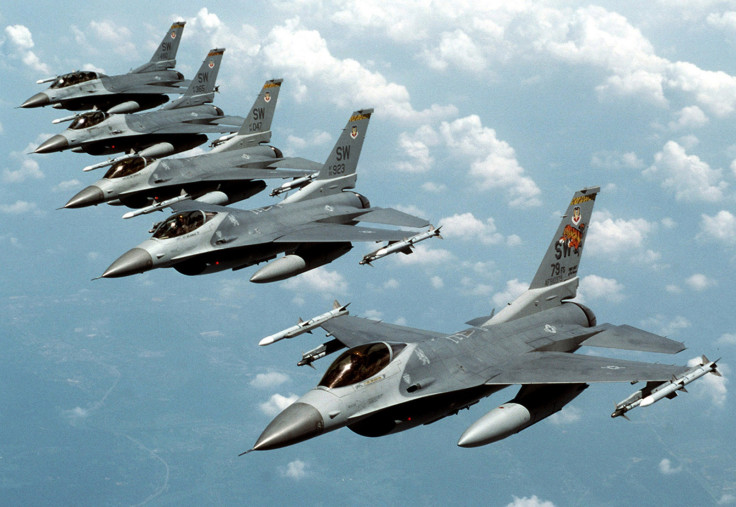UAE pulled out of US anti-Isis coalition 'over arming Sunni tribes'

The United Arab Emirates' decision to quit the US-led air coalition against the Islamic State (Isis) was partly driven by disagreements over whether to arm Sunnis on the ground in Iraq.
The UAE withdrew all its planes from the aerial campaign against IS last week, as it emerged that the militant group had burned to death a Jordanian pilot who had been captured after his plane went down over territory controlled by the group.
The withdrawal raised fears in Washington that support for its aerial campaign could be diminishing among Arab states in the region.
While the UAE did not comment at the time of its withdrawal, the US said the country was concerned that one of its pilots could meet a similar fate to Jordanian Moaz al-Kasasbeh.
The Emirati leadership has revealed through a semi-official newspaper that disagreements over the nature of the campaign led to its decision, including whether to arm Sunni Iraqis in Anbar province.
"The other important part behind the UAE's reservation... was its discontent with the coalition which has not kept its promise in supporting the Sunnis in Anbar, not preparing them, equipping them and arming them to take part in the war against Daesh," said al-Etihad newspaper's editor in an editorial.
UAE leaders had raised concerns over this point at a meeting in London, the editorial continued.
"The UAE said: 'The main point is what we have expressed in the last London conference – coalition against Daesh – about the continuation of not empowering the Sunni tribes in Anbar province despite the promise to do so," the paper said.
Sunni-dominated Anbar province has a difficult relationship with IS and its predecessor groups, Islamic State in Iraq and al-Qaeda in Iraq. Tribes from this region formed part of a so-called 'Anbar Awakening' during the US occupation of the country, fighting alongside US forces to defeat al-Qaeda in 2006.
The tribes felt they were sidelined by Nouri al-Maliki's Shia-dominated government which ruled until 2014, and some have joined IS in its fight against the Iraqi state this time around.
Large parts of Anbar fell to IS last year, causing security concerns in neighbouring Jordan and Saudi Arabia.
The US has been reluctant to directly arm factions on the ground in Iraq and Syria, concerned that weapons could fall into the wrong hands amid rapidly changing allegiances on the ground.
While the Emirati newspaper did not cite the UAE leadership in its article, Etihad is seen as close to the government.
© Copyright IBTimes 2024. All rights reserved.






